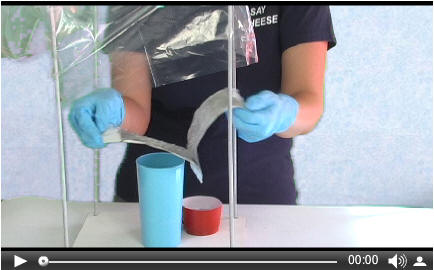|
View in browser: https://www.crime-scene-investigator.net/newsletter/1118.html
|
||
|
NOVEMBER 2018 | ||
| ||
|
This Month's Featured Resource on the Crime Scene Investigator Network Website
|
||
|
The idea of The Fingerprint Sourcebook originated during a meeting in April 2002. Individuals representing the fingerprint, academic, and scientific communities met in Chicago, Illinois, for a day and a half to discuss the state of fingerprint identification with a view toward the challenges raised by Daubert issues. The meeting was a joint project between the International Association for Identification and West Virginia University. One recommendation that came out of that meeting was a suggestion to create a sourcebook for friction ridge examiners, that is, a single source of researched information regarding the subject. This sourcebook would provide educational, training, and research information for the international scientific community. |
||
|
Featured Video Presentation
|
||
|
Learn the basic technique for processing latent fingerprints with super glue. |
||
|
New CSI and Forensic Job Announcements
|
||
|
The most comprehensive listing of Crime Scene Investigation and Forensic To be notified of job openings as they are posted, follow us on Twitter: Job Posting Alerts |
||
|
Forensic Specialist I
Irvine Police Department, Irvine, California, USA Final Filing Date: November 30, 2018 Locates, identifies, collects, protects, preserves and analyzes materials and substances as evidence at crime scenes and other locations using a variety of specialized equipment and techniques. Develops and lifts latent prints; prepares and enters latent prints into CAL-ID computer system; compares latent prints. Collects and classifies other types of impression evidence. <View complete job listing> |
||
|
Crime Scene Investigator I
Orange County Sheriff's Office, Orlando, Florida, USA Final Filing Date: Open until filled Responds to and processes various crime scenes by searching for, documenting the location of, collecting, preserving, analyzing, packaging, and preparing for presentation in court, evidence such as: paint, glass, printed matter, paper, ink, fabric, dust, dirt, combustible gases, hair, skin, blood, bones, human organs, human tissue, semen, urine, feces, saliva, vaginal secretions, narcotics, firearms and related materials, fingerprints, shoe/tire tracks, and currency. <View complete job listing> |
||
|
Crime Lab Forensic Technician - Biology Unit
Metro Nashville Police Department, Nashville, Tennessee, USA Final Filing Date: November 26, 2018 Performs chemical and immunological tests on physical evidence. Interprets and evaluates serological test results. Collects DNA samples for training and the validation of laboratory equipment and procedures. <View complete job listing> |
||
 |
||
|
Forensic Systems Analyst I/II
Yolo County District Attorney, Woodland, California, USA Final Filing Date: November 30, 2018 Performs forensic examinations digital media such as hard drives, cell phones, videos, memory cards, and other electronic data storage media using the most current versions of a number of validated forensic software programs; performs data recovery tasks when files are damaged, fragmented, erased, hidden, etc. and from modified storage devices. Conducts field investigations at crime scenes to search for, collect, and preserve evidence for laboratory analysis; reconstructs situations utilizing physical and digital evidence. <View complete job listing> |
||
|
Fingerprint Technician
Arizona Department of Public Safety, Phoenix, Arizona, USA Final Filing Date: November 25, 2018 Responsible for a variety of fingerprint duties, including the acquisition, classification, searching, comparison, identification and filing of fingerprints, either manually or via Arizona Automated Fingerprint Identification System (AZAFIS) processes; takes fingerprint impressions. <View complete job listing> |
||
|
Evidence Technician I
Illinois State Police, Belleville, Illinois, USA Final Filing Date: November 29, 2018 Performs all the evidence handling processes associated with evidence as received or transferred by the State Police, which includes receiving, storing, distributing, collecting, and returning physical evidence to law enforcement agencies or assisting in the disposal of evidence. Chain of custody records are maintained, testimony may be provided in court concerning the chain of custody. <View complete job listing> |
||
|
Search for more job listings in Crime Scene Investigations and Forensics To be notified of job openings as they are posted, follow us on Twitter: Job Posting Alerts |
||
|
Other Resources on the Crime Scene Investigator Network Website
|
||
|
Not Subscribed to this Newsletter?
|
||
|
If you are not subscribed to this newsletter, you may subscribe with this link: SUBSCRIBE via email |
||
|
To Unsubscribe
|
||
|
To unsubscribe from future e-mail newsletters, please click here: UNSUBSCRIBE Copyright ©2018 Crime Scene Resources, Inc. Crime Scene Investigator Network |



